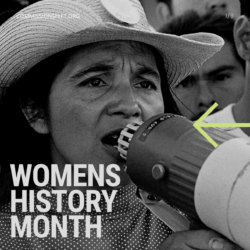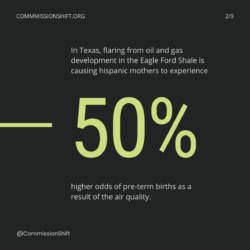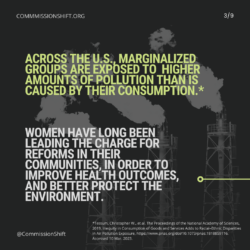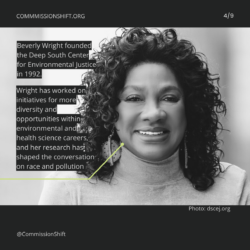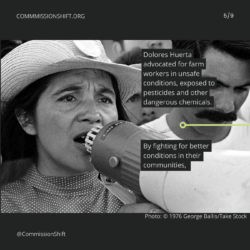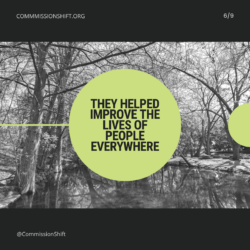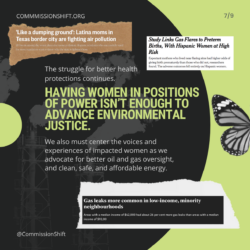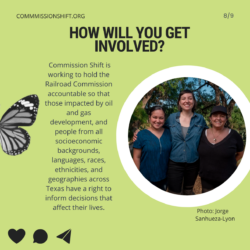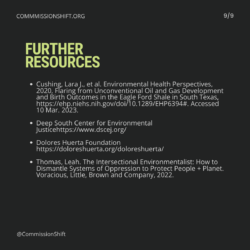In Texas, A 2020 study found that Hispanic mothers living next to high rates of flaring from oil and gas wells had 50 percent higher odds of preterm birth. This study is one illustration of a disturbing pattern where across the United States, marginalized groups are exposed to significantly higher amounts of pollution than is caused by their consumption.
Historically under-recognized women like Beverly Wright and Dolores Huerta have defined the Environmental Justice movement by leading the charge for reforms in order to improve health outcomes in their communities and better protect the environment.
Born in New Orleans, Beverly Wright saw the effects of pollution in Cancer Alley – the infamous strip of land between New Orleans and Baton Rouge with over 150 petrochemical plants and refineries. Her research and work with Dr. Robert Bullard shaped the conversation on race and pollution, while the Deep South Center for Environmental Justice – an organization Wright founded and directs – has run for over three decades contributing to research, education, and advocacy in environmental and health studies.
Dolores Huerta was deeply impacted by the conditions she saw around her in Northern New Mexico and later Stockton, California. Huerta started the Agricultural Workers Association before going on to spend a lifetime advocating for Mexican-American farm workers in unsafe conditions, exposed to pesticides and other dangerous chemicals.
Women like Wright and Huerta are key in linking the struggles of disadvantaged and marginalized communities with the struggle for clean air and water. By fighting for better conditions in their communities, they helped improve the lives of people everywhere. The struggle for better health protections, however, continues to this day.
We are proud of being a women-led and latinx-led organization at Commission Shift, but having women in positions of power isn’t enough to advance environmental justice. We also must center the voices and experiences of impacted women as we advocate for better oil and gas oversight, and clean, safe, and affordable energy.
